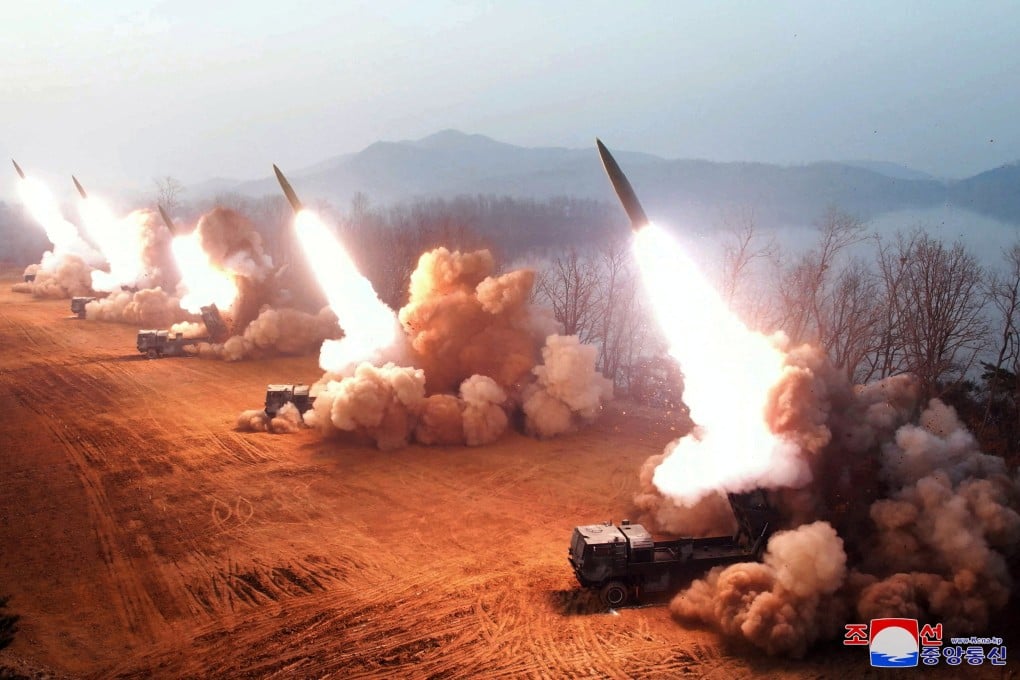Advertisement
Opinion | As Kim Jong-un fires off more missiles and threats, South Korea’s hardline strategy is failing
- Several North Korean missiles have been fired in response to US-South Korea drills as Pyongyang warns of war provocations, and talk in Seoul turns to nuclear arms
- Rather than fanning the flames, the Yoon administration should focus on balanced diplomacy, dialogue and long-term stability and peace
Reading Time:3 minutes
Why you can trust SCMP
7

Tensions are rising again on the Korean peninsula with US-South Korea military drills under way. North Korea has responded by firing missiles before and during the 11-day exercise, raising fears of a direct military confrontation.
Advertisement
It appears that the balanced diplomatic strategy South Korea has long pursued is being increasingly neglected. Given its complex geopolitical position, Seoul has had to strike a fine balance to ensure its long-term stability and security. Under the previous Moon Jae-in government, the country’s long-term diplomatic vision aimed to secure lasting peace through diplomacy, rather than military means.
But the current Yoon Suk-yeol administration has made a 180-degree turn, adopting a hardline approach centred around trilateral cooperation with Japan and the US. This strategy risks putting South Korea in a strictly pro-US bloc with unwanted consequences for its relations with North Korea, China and others.
The drills are the latest manifestation of this approach, aimed at strengthening the bloc’s deterrence to counter the North. But last year’s US-South Korea military exercise resulted in a record number of missile tests and military provocations from North Korea – and this year’s is unlikely to have a positive impact on the security and stability of the peninsula or region.
The exercises kicked off one day after North Korea said it had launched two strategic cruise missiles from a submarine. On the second day of the drills, Pyongyang launched two more short-range ballistic missiles. The launches came after North Korean leader Kim Jong-un emphasised the need “to always stay alert for all sorts of more frantic war preparation moves being committed by the enemy recently”, a likely reference to preparations by Washington and Seoul for their joint drills.
Advertisement
Besides strengthening military cooperation with Washington, Seoul has also worked to repair its relationship with Tokyo. Such efforts were on full display last week, when the Yoon government announced a compensation plan for Korean victims of forced labour during Japan’s colonial era, a plan that many strongly criticised for being hastily concluded without enough regard for the victims’ wishes.

Advertisement
